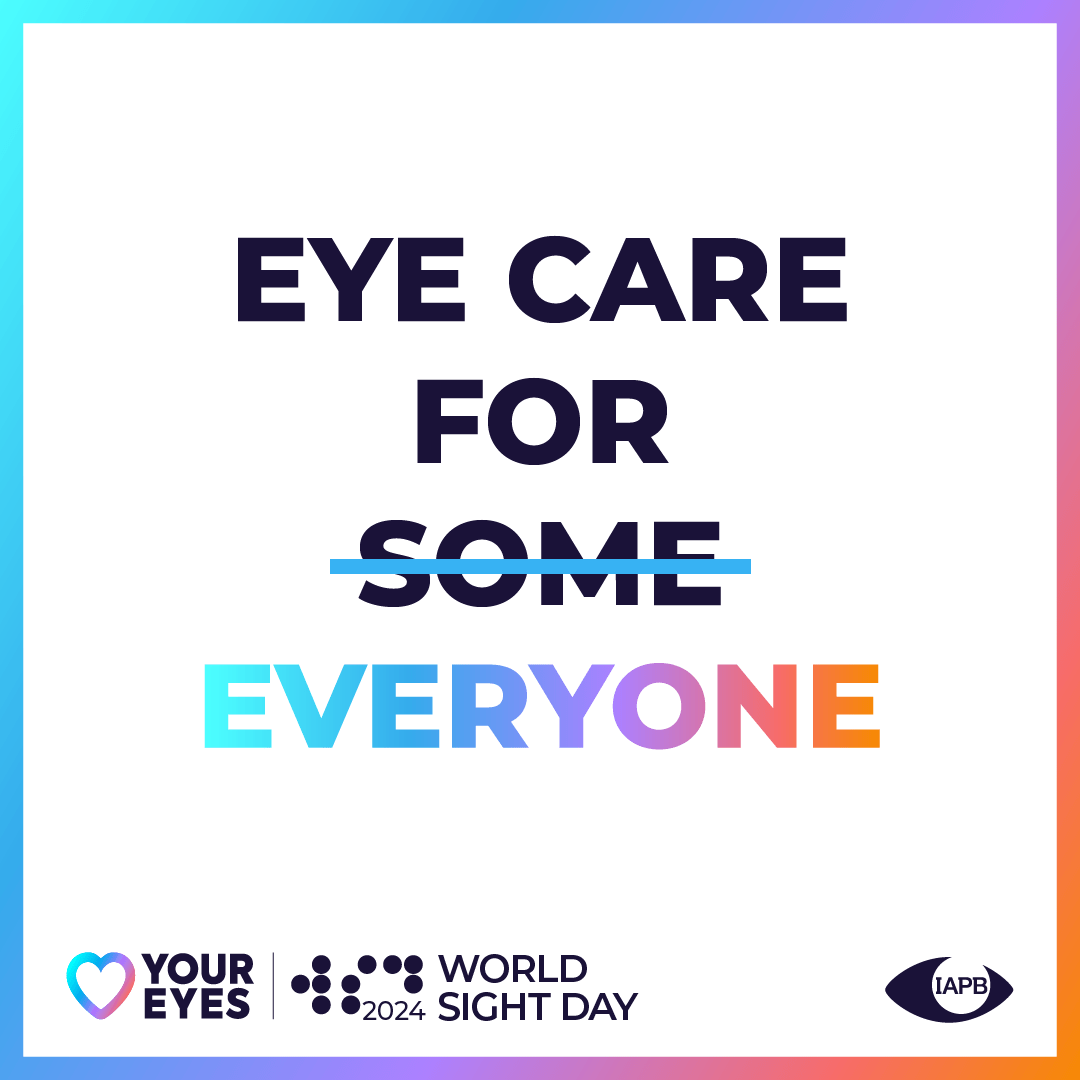
World Sight Day: Shining a Light on Blindness and Vision Impairment
Share

October 10th is World Sight Day, an annual event dedicated to raising awareness about blindness and vision impairment. This global initiative aims to draw attention to the importance of eye health and the need for accessible eye care services for everyone. Let's take this opportunity to learn more about the challenges faced by those with vision impairment and explore ways to improve eye health worldwide.
The Global Impact of Blindness and Vision Impairment
Blindness and vision impairment affect over 2.2 billion people globally, according to the World Health Organization (WHO). Out of these, at least 1 billion cases could have been prevented or have yet to be addressed. Vision impairment significantly impacts an individual's quality of life, hindering their ability to perform daily tasks, pursue education, and participate in the workforce.

Common Causes of Vision Impairment
- Cataracts
Cataracts are the leading cause of blindness globally, characterized by clouding of the eye's lens. They are highly treatable with surgery, yet millions of people lack access to this essential procedure.
- Glaucoma
Often called the "silent thief of sight," glaucoma gradually damages the optic nerve, leading to irreversible vision loss. Early detection through regular eye exams is crucial for managing this condition.
- Diabetic Retinopathy
A complication of diabetes, diabetic retinopathy damages blood vessels in the retina. Controlling blood sugar levels and regular eye check-ups can help prevent or delay its progression.
- Age-Related Macular Degeneration (AMD)
AMD affects the central part of the retina, leading to loss of central vision. It is a leading cause of vision loss in older adults and requires ongoing management and monitoring.

The Importance of Regular Eye Exams
Regular eye exams are vital for early detection and treatment of eye conditions. Comprehensive eye exams can identify issues before symptoms appear, allowing for timely intervention and better outcomes. Unfortunately, access to eye care remains a significant barrier for many people, particularly in low-income and rural areas.
Advocacy for Universal Eye Care
- Increasing Awareness
Educating the public about the importance of eye health and the availability of eye care services can encourage more people to seek regular eye exams and treatment.
- Policy and Funding
Governments and organizations must prioritize eye health by investing in healthcare infrastructure, training eye care professionals, and ensuring services are affordable and accessible.
- Community Initiatives
Community-based programs can extend eye care services to underserved populations. Mobile clinics, vision screening camps, and partnerships with local organizations can make a significant difference.

Club Bôhten has executed free eye exams to
primary school students in Accra, Ghana
This World Sight Day, let's commit to improving eye health and preventing vision impairment globally. By advocating for universal access to eye care and raising awareness about the importance of regular eye exams, we can help reduce the prevalence of avoidable blindness and enhance the quality of life for millions. Join us in taking action to ensure everyone has the chance to see a brighter future.
Feature written by Optometrist Dr. Henry
